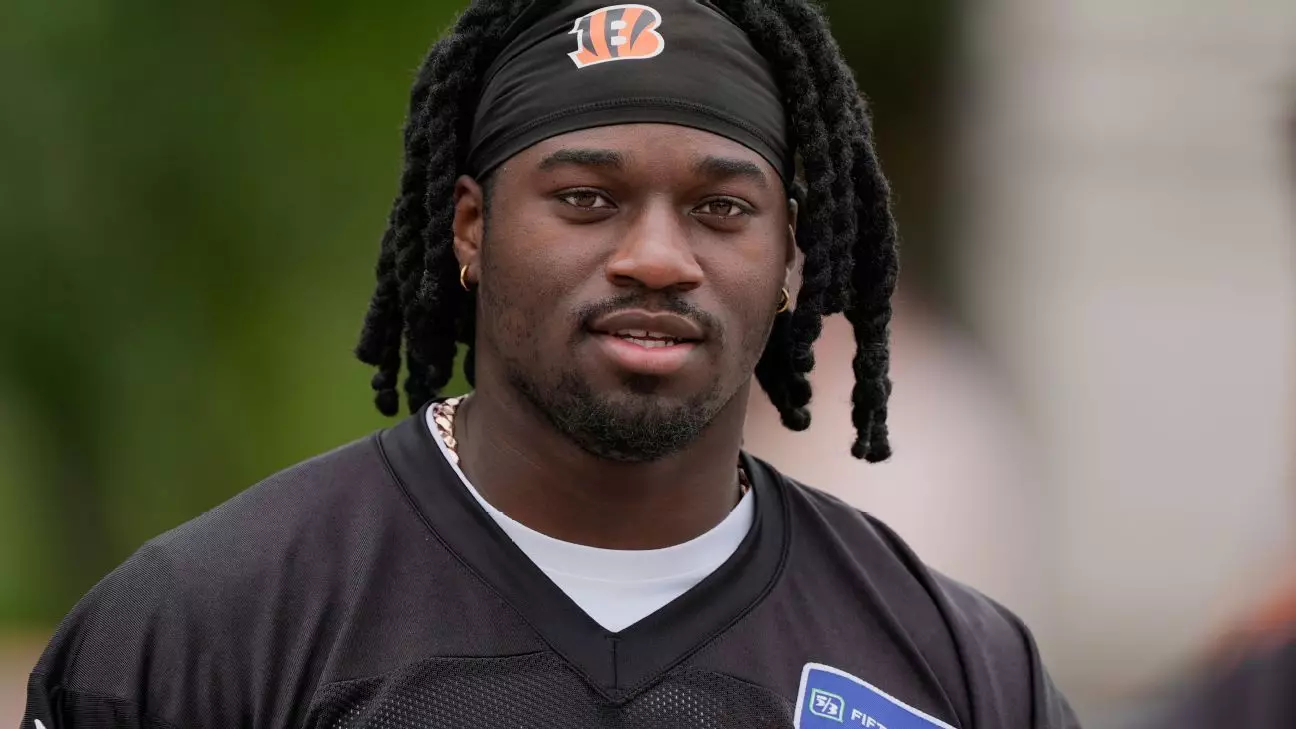The recent negotiations surrounding Shemar Stewart’s rookie deal underscore a significant shift in the NFL’s contract culture. Historically, rookie contracts have been standardized, with teams holding considerable leverage due to salary cap constraints and league regulations. However, Stewart’s case reveals an emerging dynamic: players and their representatives are asserting more control over contract language, especially clauses that could limit guaranteed money. By demanding specific carve-outs—like the void language—Stewart’s camp signaled a willingness to challenge traditional NFL contract structures. This negotiation illustrates a broader trend where young athletes are no longer passive recipients of standardized deals; instead, they’re becoming strategic negotiators, leveraging high-caliber talent to push for fairer, more transparent agreements.
Stewart’s stance was bold, especially considering he was the final first-round pick to sign. His refusal to participate fully in offseason workouts and the early stages of camp was a calculated move to pressure Cincinnati into concessions. What’s intriguing is how these tactics may influence future contract negotiations, especially as more drafted players recognize the value in safeguarding their guaranteed income. In essence, Stewart’s stand symbolizes a shift toward player empowerment that could reshape NFL rookie contracts for years to come.
The Cultural Significance of Contract Disputes in the NFL
The controversy surrounding Stewart’s deal is more than just about dollars—it’s emblematic of a broader cultural conversation about player rights and ownership of one’s career. In recent years, athletes across professional sports have become increasingly vocal about guaranteed money and contractual protections, reflecting their understanding of the brutal physical toll and short career span. Shemar Stewart’s refusal to sign without explicit guarantees highlights a key evolution: players are demanding fair guarantees upfront, not at the mercy of league language that leaves them vulnerable.
This not only affects rookie contracts but also sets a precedent for veteran negotiations. Young prospects like Stewart are establishing a blueprint for asserting their worth early, signaling a shift where teams might have to accept more nuanced language or risk holding out. The power dynamic is subtly shifting, with players realizing that standing firm can result in better financial security—a lesson that could propel future generations toward more equitable contract negotiations.
The Bengals’ Approach: Balancing Tradition and Modernity
Cincinnati’s handling of Stewart’s negotiation exemplifies tension between tradition and innovation in NFL contract practices. The Bengals, closely tied to a conservative franchise culture under owner Mike Brown, historically favor cautious contract language designed to protect their financial interests. By incorporating void clauses—language that could void guaranteed money under specific circumstances—they aimed to shield themselves from potential misconduct or legal issues.
Yet, Stewart’s refusal to accept such language and the subsequent compromise reveal an organization willing to adapt. The Bengals’ decision to offer a more lucrative payout structure in exchange for the contested language indicates a rare flexibility. This move reflects a subtle acknowledgment that modern players—especially high draft picks—expect more transparency and fairness. Cincinnati’s willingness to bend signals a recognition that aligning player interests with organizational goals is essential in attracting top talent and maintaining a competitive edge.
The Broader Implications for the NFL Ecosystem
Stewart’s contract dispute is indicative of a broader shift that could ripple across the NFL landscape. As players become more assertive, teams may be pressured to revise their standard contract practices, potentially leading to more equitable negotiations league-wide. The precedent set by Stewart’s stand might inspire other first-rounders to demand similar protections, especially as younger players understand their market value better than ever.
Furthermore, this case raises questions about the league’s future approach to guaranteed money—a topic increasingly at the forefront amid ongoing debates about player compensation and financial fairness. As more high-profile players push for guaranteed deals, the NFL might face pressure to reconsider longstanding contractual norms. Such changes could foster a healthier, more balanced ecosystem where both sides negotiate in good faith, with protections that reflect the realities of modern professional sports.
In navigating this tense negotiation terrain, Stewart’s stance exemplifies a new era of athlete activism—where securing financial security and contractual fairness is just as crucial as on-field performance. His breakthrough won’t just benefit him; it might catalyze a movement toward more transparent, player-friendly standards that redefine the league for the better.


Leave a Reply